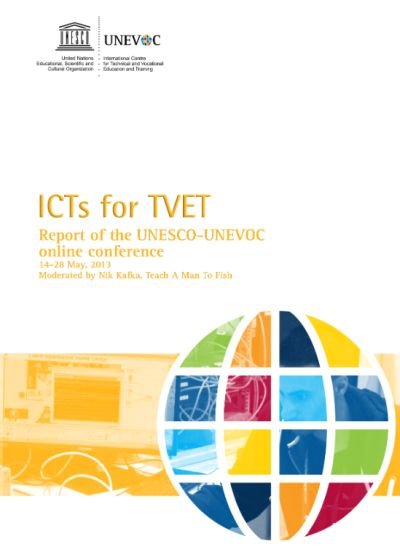
The UNESCO-UNEVOC International Centre: Who We Are | What We Do | Working With Us | Get in Touch
The UNEVOC Network: Learn About the Network | UNEVOC Network Directory
For Members: UNEVOC Centre Dashboard
Thematic Areas: Inclusion and Youth | Digital Transformation | Private Sector Engagement | SDGs and Greening TVET
Our Key Programmes & Projects: BILT: Bridging Innovation and Learning in TVET | Building TVET resilience | TVET Leadership Programme | WYSD: World Youth Skills Day
Past Activities: COVID-19 response | i-hubs project | TVET Global Forums | Virtual Conferences | YEM Knowledge Portal
Our Services & Resources: Publications | TVET Forum | TVET Country Profiles | TVETipedia Glossary | Innovative and Promising Practices | Toolkits for TVET Providers | Entrepreneurial Learning Guide
Events: Major TVET Events | UNEVOC Network News

| Author/s: | Nik Kafka |
| Publisher/s: | UNESCO-UNEVOC |
| Published: | 2013 in Bonn, Germany |
| ISBN online: | 978-92-95071-56-8 |
| ULC: | UNEVOC Library Catalogue ID 4311 |
This report summarizes the discussions that were held in May 2013 during the e-Forum virtual conference on the implications of the ICT revolution for TVET, moderated by Nik Kafka from Teach A Man To Fish.
Information and Communication Technologies (ICTs) are key in the provision of TVET. Around the world, gaining employment increasingly depends on a person’s ability to effectively and efficiently use ICTs. ICTs facilitate the implementation of education and training, the provision of learning content, and communication between teachers and learners. ICTs need to be harnessed with the purpose of providing more widespread access to TVET. While the use of ICTs are expanding rapidly, major challenges are faced in terms of capacity development, access, connectivity, and localisation, customisation and content development.
UNESCO-UNEVOC fosters the development and use of ICTs in TVET through its activities, including its various online services, collaboration within the UNEVOC Network and workshops, seminars and other activities organized jointly with partner organizations.